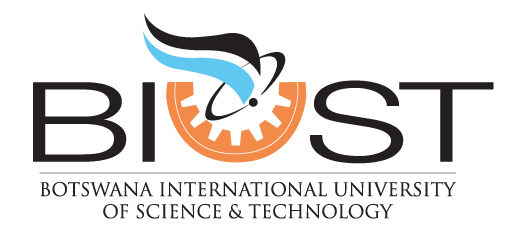2023 - 2025 NATIONAL SCIENCE WEEK CONCEPT
The month of August has been designated as the month of Science, Technology, and Innovation in Botswana wherein activities promoting science public education are to be held across the country. The commemorations bring together all Research Science Technology and Innovation (RSTI) stakeholders (Government Institutions, Tertiary Institutions, the Industry and the Civic Community and primary and secondary students) to share knowledge and experiences and build partnerships to strengthen the National System of Innovation.
This initiative precipitates from the SADC initiative following a resolution by SADC Science and Technology Ministers in 2008 that SADC should set aside at-least a week every year to commemorate RSTI. This was in view of an observation that awareness in science and technology in the region was very low, resulting in low investment and benefits from RSTI.
Botswana decided to extend the week into a month to realize sustained impact in line with the revised Research Science Technology and Innovation (RSTI) Policy of 2011. The Policy emphatically supported an increase in Research Development (RD) investment to 2 % of the Gross Domestic Products (GDP), which at this point is at 0.54%. All RSTI stakeholders are expected to inundate the month with RSTI activities to enhance RSTI awareness and popularization.
The Department of Research Science and Technology (DRST) in collaboration with RSTI stakeholders commemorated the National Science Weeks in Kang (2015), Palapye (2016), Mochudi (2018), Goodhope (2019) and Masunga (2022). The 2020 and 2021 events were presented virtually due to COVID-19 protocols. The events were highly successful where different stakeholders, individuals, science and technology enthusiasts displayed their inventions, literary and artistic works in science technology and innovation area. It demonstrably showed that Botswana has many science activities going on in the country, with diverse population of experts in science and technology. Some of the activities of the NSW include, but not limited to, lectures/seminars, demonstrations, competitions, exhibitions, institutional tours, panel discussions and debates.
The Department delegated the running of the 2018 event to the University of Botswana. The Botswana International University of Science and Technology was engaged from 2019 to 2022. To bring continuity and sustainability to the Programme, BIUST is assigned to organise and stage the Science Month events and Science Week for three consecutive years from 2023.
The Department of Research Science and Technology has facilitated the engagement of stakeholders to come-up with the National Science Communication and Public Engagement Strategy. The Strategy would be a guide to the stakeholders on impactful activities that they must infuse in their annual operations to communicate and engage the public on the development and creation of scientific knowledge.
GOAL
The overall goal of the initiative is mainly to popularize RSTI across Society through; establishment of initiatives aimed at demystifying Science & Technology theories and promotion of establishment of RSTI business enterprises. This would build public confidence and encourage participation, hence increased technology participation. Stakeholders are therefore, expected to inundate the country with RSTI related activities or events throughout the month in their respective locations.
OBJECTIVES
The main objectives of the National Science Week are to:
Promote science communication and engagement by all stakeholders participating in the national innovation system.
- Increase public awareness, understanding, engagement and appreciation of the importance of science, technology and innovation in our daily lives, through various interactive platforms.
Stimulate interest in Science, Technology, Engineering and Mathematics subjects starting from early childhood learning through primary and secondary school levels.
Expose the public to scientific and technological advances locally and internationally.
- Provide a platform for showcasing research and innovation products with a view of exposing commercialization potential to entrepreneurs.
MODUS OPERANDI
Events will be organised and staged in various locations throughout the country during August. The Lead Organiser will issue an Expression of Interest to institutions to organise and stage satellite activities within their localities. A report with recommendations will be submitted to DRST by October of each year.
- Lead Organiser: Botswana International University of Science and Technology (BIUST).The Department is desirous of engaging Botswana Public Research Institutions (Tertiary Institutions, Research & Technology Organisations) to organise the National Science Month and the National Science Week (NSW) on behalf of the Ministry of Communications, Knowledge and Technology (MCKT).
- Responsibilities of the Lead Organiser:
- Lead stakeholders in the activities to be undertaken during the Month.
- Determine the integration of the national event logistics and publicity.
- Profile the audience and advise secondary runners on the target population, which must include, but not limited to, the following (primary and secondary school students, tertiary students, research institutions, Indigenous Knowledge System (IKS) holders/associations, RSTI related associations and the public
- Determine collective resources, including detailed budget, required for organization and performance of the Science Month activities.
- Publicize satellite activities
- Satellite Activities:
Satellite activities will be organized and staged by interested stakeholders in various parts of the country. An Expression of Interest to host, organize and stage a satellite activity will be floated by the Lead Organiser in various media platforms. Interested stakeholders will be supported with budget through the Lead Organiser.The following are eligible to organize an activity, which could be a few minutes, hours, a day, or days during the week.- Local scientists and other related experts.
- Local government (e.g. councils, National Parks and Wildlife services, youth and family services)
- Business associations
- Schools, universities and colleges
- Arts and community organisations
- Local clubs and societies
- Private Sector in partnership with other institutions
- Civil Society
- Responsibilities of Satellite Organisers:
- Run an event at an agreed place/ Region/cluster
- Determine budget and activities in their area
- Inform the lead institution on their plans and activities
- Provide leadership for the local organizing committees which shall be composed of the local authorities and other stake holders
